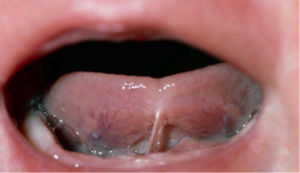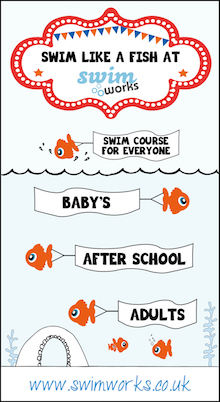 This is a subject close to my heart as my little boy suffered from tongue tie when he was born. I desperately tried to breast feed my little man as I had struggled and failed with my daughter. I couldn’t understand why it was so painful. I was bleeding and he would pull off in pain. It was not until day three that a midwife came out and flippantly told me “He’s got tongue tie, but I wouldn’t worry” and left me to it!
This is a subject close to my heart as my little boy suffered from tongue tie when he was born. I desperately tried to breast feed my little man as I had struggled and failed with my daughter. I couldn’t understand why it was so painful. I was bleeding and he would pull off in pain. It was not until day three that a midwife came out and flippantly told me “He’s got tongue tie, but I wouldn’t worry” and left me to it!
Unbelievably I continued to feed (painfully) for another week before talking to a friend of a friend who suggested that I take a second opinion as it was likely to be the tongue tie that was causing me the most excruciating, toe curling pain every time I attempted to feed.
I spoke to my health visitor who told me that if I wanted to go on the NHS I would potentially have to go on a waiting list and travel quite a considerable distance to get it sorted. I decided that this wasn’t an option for me and took the details of a local practitioner who agreed to book us into her clinic that weekend.
She took one look in my tiny little baby’s mouth and suggested I was incredible for feeding him for so long and suggested a frenulotomy, which she performed there and then. My little boy was good as gold and barely even flinched. It bled a little but only momentarily. The consultant then gave my baby to me to feed him and the rest of our lives began. It did take some time to get the feeding right after that and £100 later for paying to go private but I am so thankful I didn’t give up!
Below is some useful information regarding tongue tie, including links for further info and practitioners.
What is a tongue tie? A tongue tie is a membrane that extends from the underside of the tongue, in the middle, to the bottom of the inside of the mouth.
How common is it? Estimates vary, but a commonly quoted figure is that 1 in 20 babies has some sort of tongue tie. It’s commoner in boys and there may be other members of the family who have also had a tongue tie.
What are the symptoms of a tongue tied baby? Sometimes mothers will experience painful feeding, grazing or damage to the areola or nipple, or even mastitis. Babies may latch on poorly, require several attempts to latch and become frustrated. They may make a clicking noise when feeding. Feeding may be prolonged, and the baby may still be hungry and be irritable, or be ready to feed again within an hour or two. Some babies have problems with excessive wind and may be in pain or suffer from vomiting as a result of swallowing wind. These are some of the more common symptoms of a tongue tie causing problems with breast feeding.
Useful tongue tie links:
- NHS on Tongue-Tie
- Nice guidelines on division of tongue tie for breast feeding
- If you live in Warwickshire, there is currently a petition urging the local NHS to create a Tongue tie service in the area – follow link





